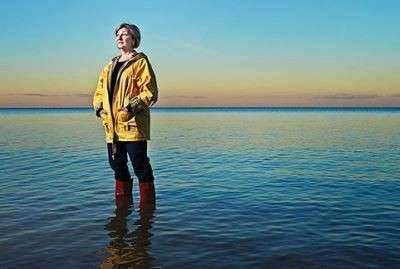How policy researchers are helping restore the Great Lakes

How do you make sure that public policy designed to secure the health of the Great Lakes − and by extension the well-being of the 35-plus million people who rely on the system for drinking water and their livelihood − is actually implemented?
That's the question Ryerson Politics and Public Administration Professor Carolyn Johns decided to tackle when she created the Great Lakes Policy Research Network (GLPRN), a collaborative partnership involving policy researchers and graduate students from eight universities in Canada and the United States. "I wanted to bring together Canadian and U.S. social scientists interested in Great Lakes governance and policy issues to mobilize around the renegotiated Great Lakes Water Quality Agreement and do research that would lead to better success."
A little environmental policy history: In 1972, Canada and the U.S. signed the Great Lakes Water Quality Agreement in order to restore and protect the ecological health of the Great Lakes, starting with Lake Erie, which had been declared dead in the late 1960s due to widespread contamination from urban areas, agriculture, industries and sewage treatment plants. Because it is the shallowest of the five lakes, Lake Erie issues clear warning signals about pollution problems in the Great Lakes. The goals are simple: drinkable, fishable, swimmable waters.
Periods of concerted cleanup efforts restored Lake Erie and resulted in other successes but this was followed by a period of indifference in the mid- to late-1990s. The result: by the mid-2000s, Lake Erie started to experience the negative effects of algae blooms including contamination. Today it is in serious decline. Algae blooms are also leading to public warnings around Lake Ontario.
In 2009, Canada and the U.S. announced they would renegotiate the Great Lakes Water Quality Agreement, which had not been revised since 1987. At that time, the two federal governments promised to clean up 43 of the most polluted areas. By 2012, when the latest reiteration was finalized, only four had been cleaned up.
"The Great Lakes basin is a complex ecosystem that requires complex human intervention. We look at why we aren't having more success. We can't have ebbs and flows of government and public engagement," says Johns, who serves as project director of the network that is using public opinion research and social network analysis to understand the complexity of implementing the agreement. The project website is: http://www. greatlakespolicyresearch.org.
"We are doing a network survey of all the organizations and individuals with policy implementation mandates to understand how they work together or not. We already know Great Lakes efforts require a lot of government leadership and sustained attention and if it's not there, not a lot happens. We want to know more about who is doing what and who isn't engaged but should be.
"We also want to know more about our capacity to address issues such as groundwater management, offshore wind, invasive species, nutrient pollution management, shale gas and climate change.
"We hope that the parties that signed the agreement become aware of the gaps in capacity and shortfalls and where to target their efforts. We want to help create more accountability so that the goals and objectives can be achieved in a timely manner."
Provided by Ryerson University
















